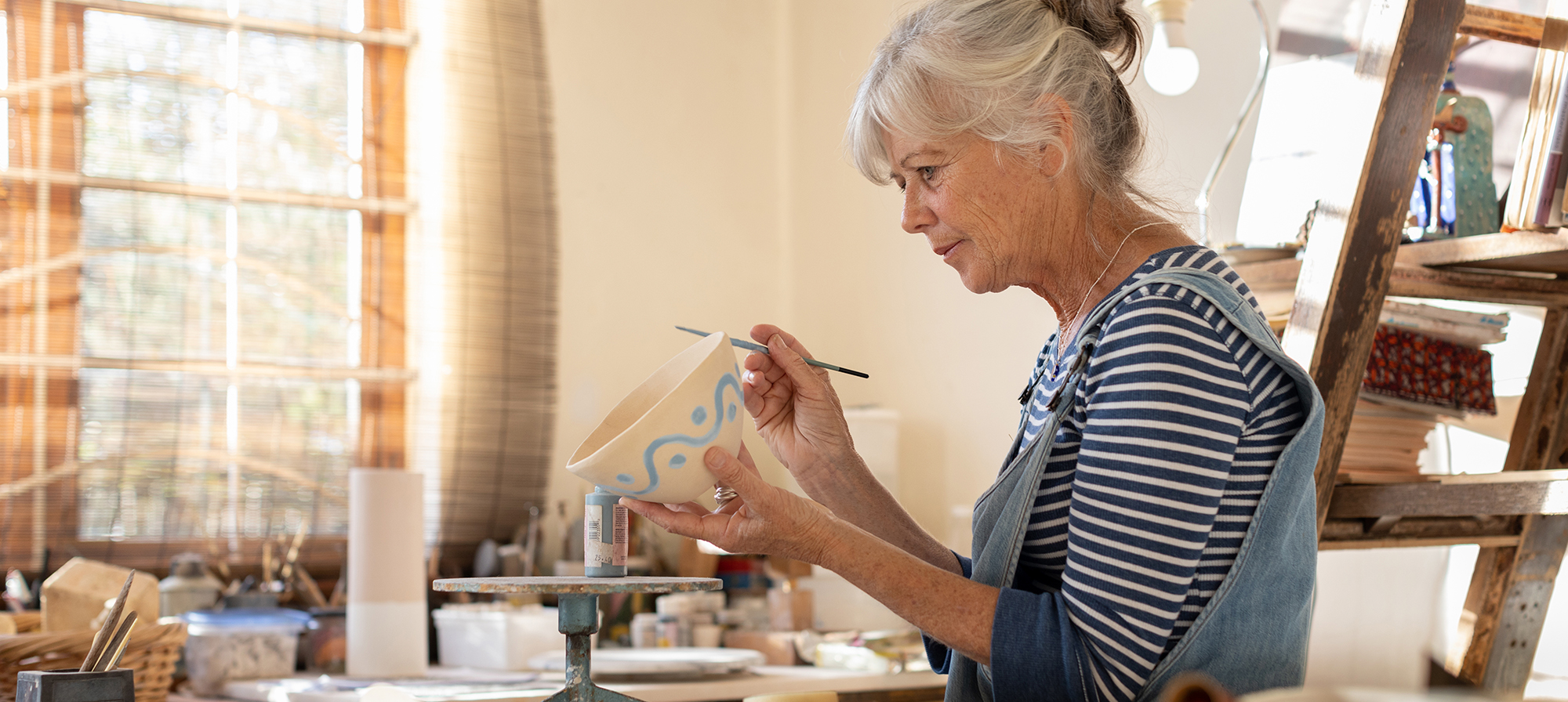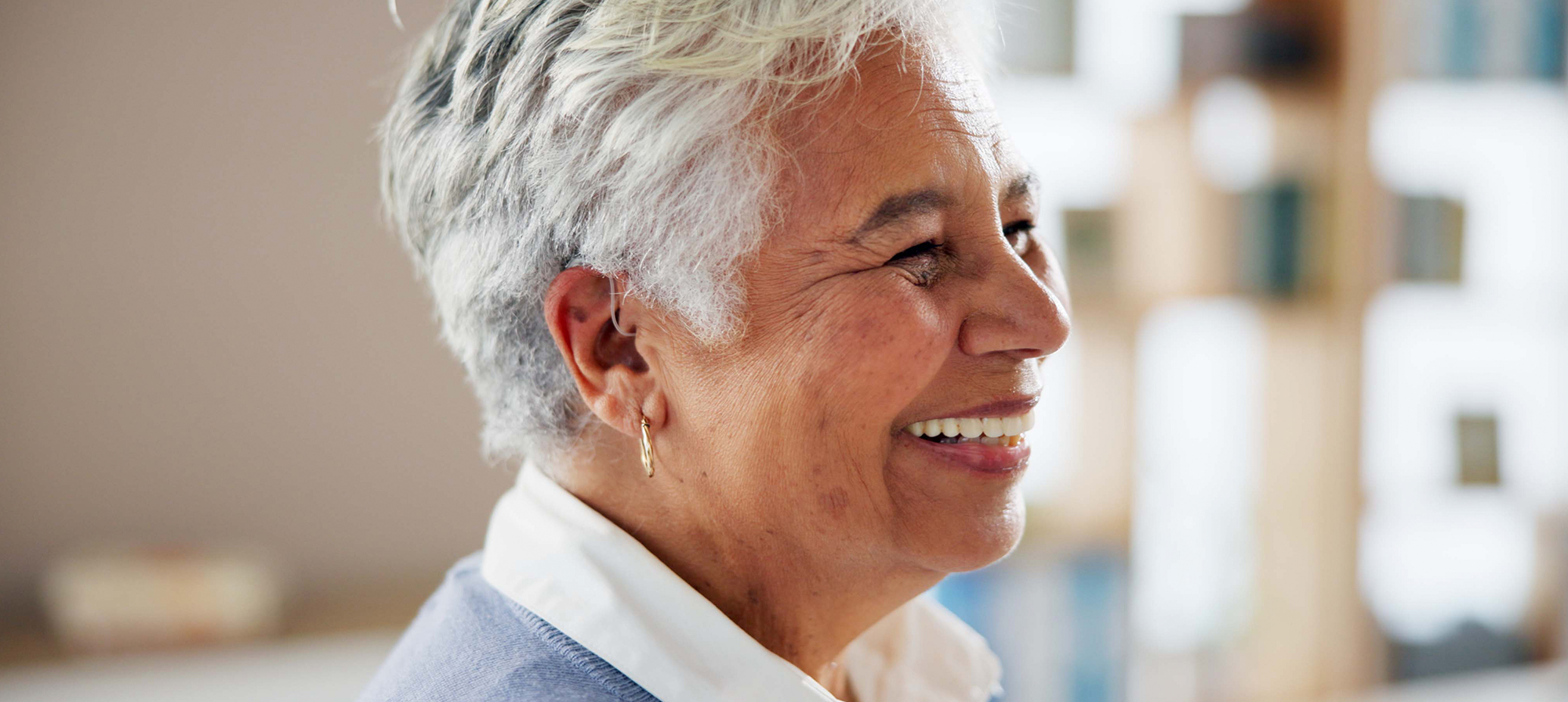Learn to recognize ageism and keep it from affecting your health and well-being.
Have you ever been on the receiving end of an age-related remark or act? Maybe it was meant to be good-natured but still kind of stung, like a crack about your greying hair or the birthday card that poked fun at your age. Or perhaps it was something more intentionally hurtful.
This is a form of bias called ageism. Ageism can affect the way you think and feel about yourself. And it can harm your health and well-being. But you can choose not to let it. Here’s how.
1. Recognize ageism by paying attention to your feelings
You may not mind many age-related jokes or comments. But they can be a problem when they:
- Hurt your feelings
- Limit your choices
- Cause you to question your worth or ability to age well
Pinpointing how ageism makes you feel, is a good first step to coping with it. Once you do that, you can decide not to let it shape your thoughts, beliefs, or actions.
2. Shift your own beliefs about ageism
Take a closer look at your own assumptions about growing older. If they’re negative, try to reshape them. Foster a belief in yourself and your ability to adapt to the changes growing older may bring. Nurture a realistic sense of optimism. Keep in mind that you can influence the things that happen in life—including how well you age.
Positive beliefs can drive positive actions—like adopting the healthy habits that will help you stay strong and vital as you age. You can also learn to accept what you can’t control and learn to find peace in that acceptance.
3. Don’t let “old age” stereotypes define you
If you buy into ageist attitudes and stereotypes, they’re more likely to turn into self-fulfilling prophecies.
Say you buy into the idea that losing muscle strength or bone density is a necessary part of aging. So, you stop exercising altogether. Or maybe you buy into the idea that no matter what you do, you will lose your memory as you age. You might stop taking steps to stay mentally sharp.
Research shows that this is how ageism can rob you of your power to direct your health and well-being—if you let it. But you can choose not to let it. Staying healthy, happy, and vital—no matter your age—is your right. It’s also something you have a great deal of control over. Don’t let ageism convince you otherwise.
Not a Silver&Fit® member? Learn more about everything the program has to offer, including more helpful healthy living tips like this, here on our website.
This information is not intended to take the place of regular medical care or advice. Please check with your doctor before using this information or beginning any self-care program. Images used for this article do not depict any members of the Silver&Fit program.
References
Burnes, D., Sheppard, C., Henderson, D. R., Wassel, M., Cope, R., Barber, C. . . . Pillemer, K. (2019). Interventions to reduce ageism against older adults: A systematic review and meta-analysis. American Journal of Public Health, 109(8), e1-e9. doi: 10.2105/AJPH.2019.305123
Dionigi, R. A. (2015). Stereotypes of aging: Their effects on the health of older adults. Journal of Geriatrics. doi.org/10.1155/2015/954027
Hoare, C. (2021). Resilience in the elderly. Aging Life Care Association. https://aginglifecare.org
Merchant, R. A., Aprahamian, I., Woo, J., Vellas, B., & Morley, J. E. (2022). Editorial: Resilience and successful aging.
The Journal of Nutrition, Health & Aging, 26(7), 652–656. https://doi.org/10.1007/s12603-022-1818-4
Nelson, T. D. (2016). Promoting healthy aging by confronting ageism. American Psychologist, 71(4), 276-282.
doi: https://doi.org/10.1037/a0040221
Palsgaard, P., Maino Vieytes, C. A., Peterson, N., Francis, S. L., Monroe-Lord, L., Sahyoun, N. R., Ventura-Marra, M., Weidauer, L., Xu, F., & Arthur, A. E. (2022). Healthcare professionals' views and perspectives towards aging. International Journal of Environmental Research and Public Health, 19(23), 15870. https://doi.org/10.3390/ijerph192315870
Semantic Scholar. (2014). The psychology of change: Self-affirmation and social psychological intervention. https://pdfs.semanticscholar.org/7fe3/234bd35d814caed6e3cf43a3f3ed76ecd6e2.pdf
Zhang, B., Lin, Y., Gao, Q., Zawisza, M., Kang, Q., Chen, X. (2017). Effects of aging stereotype threat on working self-concepts: An event-related potentials approach. Frontiers in Aging Neuroscience, 12(9), 223.
This article was written by Gail Olson; edited by Candace Hodges; and, clinically reviewed by
Elizabeth Thompson, MPH, RDN, on September 11, 2024.





